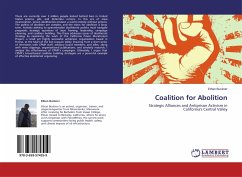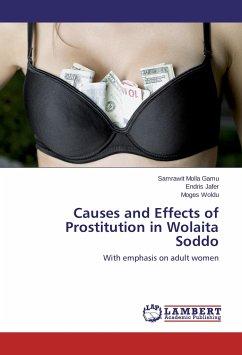
Coalition for Abolition
Strategic Alliances and Antiprison Activism in California's Central Valley
Versandkostenfrei!
Versandfertig in 6-10 Tagen
27,99 €
inkl. MwSt.

PAYBACK Punkte
14 °P sammeln!
There are currently over 3 million people locked behind bars in United States prisons, jails, and detention centers. In this era of mass incarceration, prison abolitionists envision a world entirely without prisons. The politics of abolition are complex, and the vision for abolition is long-term. Activists seeking to operationalize abolitionist politics must navigate pragmatic strategic questions of issue framing, leadership, campaign planning, and coalition building. This thesis addresses issues of abolitionist strategy by examining the work of the California Prison Moratorium Project, a smal...
There are currently over 3 million people locked behind bars in United States prisons, jails, and detention centers. In this era of mass incarceration, prison abolitionists envision a world entirely without prisons. The politics of abolition are complex, and the vision for abolition is long-term. Activists seeking to operationalize abolitionist politics must navigate pragmatic strategic questions of issue framing, leadership, campaign planning, and coalition building. This thesis addresses issues of abolitionist strategy by examining the work of the California Prison Moratorium Project, a small yet highly successful antiprison organization based in Fresno, at the heart of the San Joaquin Valley. Drawing from a short series of interviews with CPMP staff, advisory board members, and allies, along with news clippings, organizational publications, and scholarly research, I analyze the effectiveness of CPMP's campaigns. Ultimately, I argue that CPMP's broad-based coalition building strategies are a powerful example of effective abolitionist organizing.












